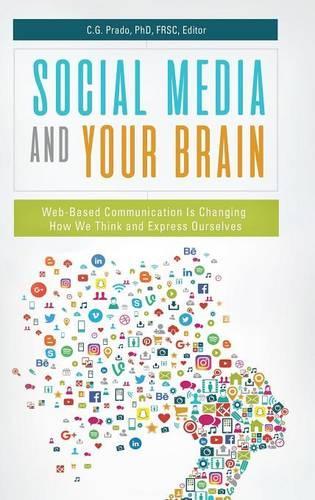
Social Media and Your Brain: Web-Based Communication Is Changing How We Think and Express Ourselves
(Hardback)
Publishing Details
Social Media and Your Brain: Web-Based Communication Is Changing How We Think and Express Ourselves
By (Author) Professor C.G. Prado
Bloomsbury Publishing PLC
Praeger Publishers Inc
21st November 2016
United States
Classifications
Tertiary Education
Non Fiction
Media studies
153.42
Physical Properties
Hardback
176
Width 156mm, Height 235mm
454g
Description
While society has widely condemned the effects on preteens and teens' natural social maturation of digitally enabled communication, such as texting and messaging, and of social media apps, such as Facebook, Instagram, and SnapChat, these forms of communication are adversely affecting everyone, including adults. This book examines how social media and modern communication methods are isolating users socially, jeopardizing their intellectual habits, and, as a result, decreasing their chances of achieving social and professional success. The ubiquitous use of the Internet and social media is changing our societyin some ways, for the worse. Use of social media, the Internet, and other purely digital and less-personal communication methods are distorting the intellectual and social maturation of teens and preteens in particularthose among us who were born into and raised with Internet technology. People's ability to read facial expressions, interpret subtle differences in spoken intonation, and perceive body language is in significant decline due to the use of social media and the Internet largely replacing direct, face-to-face contact with other human beings. This book documents how changes in our daily behavior caused by the proliferation of social media are reshaping individuals' personalities and causing an evolution of the character of our society as a whole. Readers will understand how these important changes came about and how more connectivity all too often leads to more ignorance and less comprehension, and will consider solutions that could counter the negative effects of being "too connected, too often."
Reviews
In the end, Prado and company believe, social media has not been properly analyzed and may have unknown and uncalculated consequences. Summing Up: Recommended. Upper-division undergraduates through faculty. * Choice *
This book would be beneficial to therapists, sociologists, educators, and students to show how social media change our approach in our daily lives. * PsycCRITIQUES *
Author Bio
C.G. Prado, PhD, FRSC, is emeritus professor of philosophy at Queen's University, a two-time elected Visiting Fellow at Princeton University, and a Fellow of the Royal Society.
